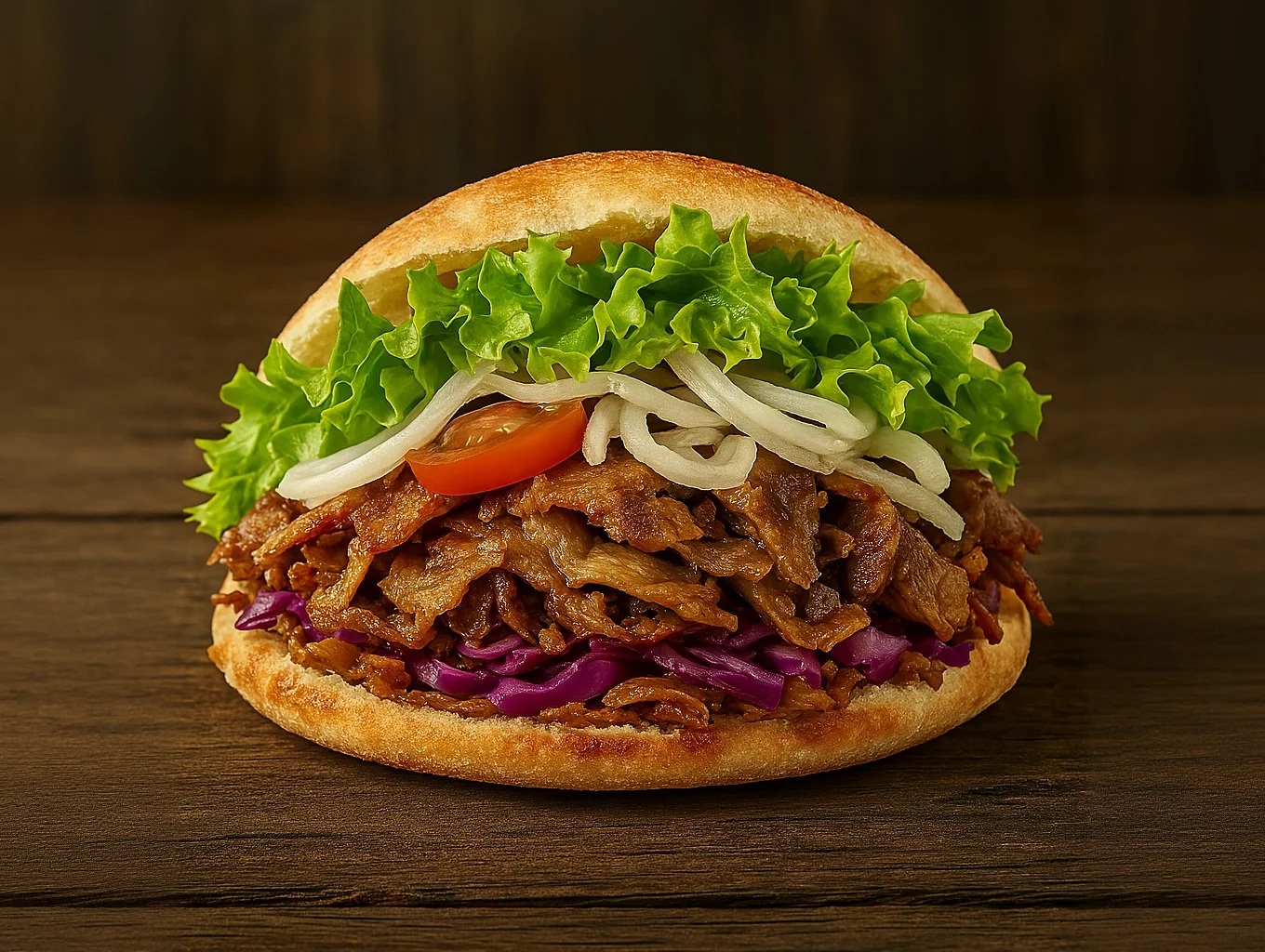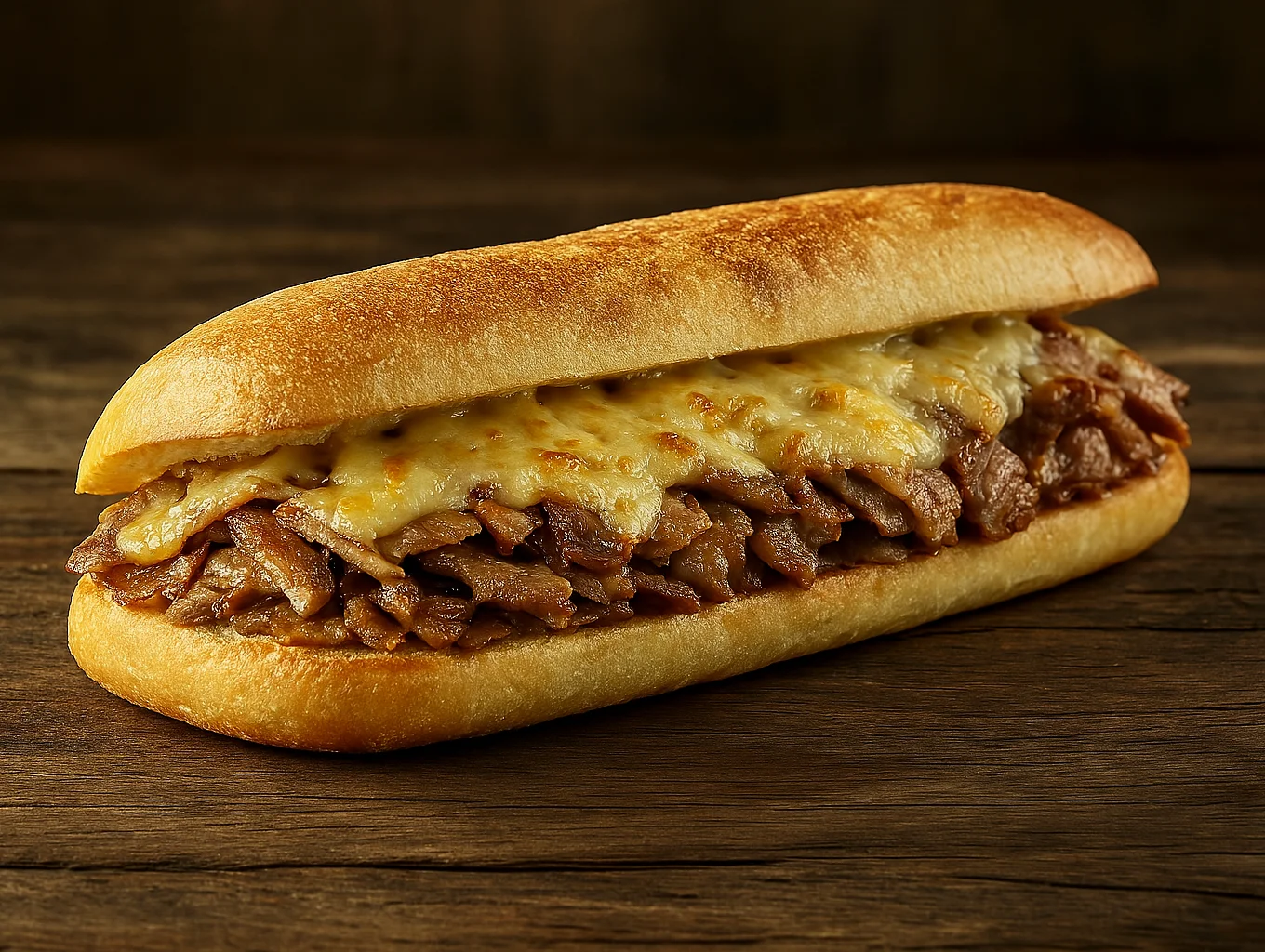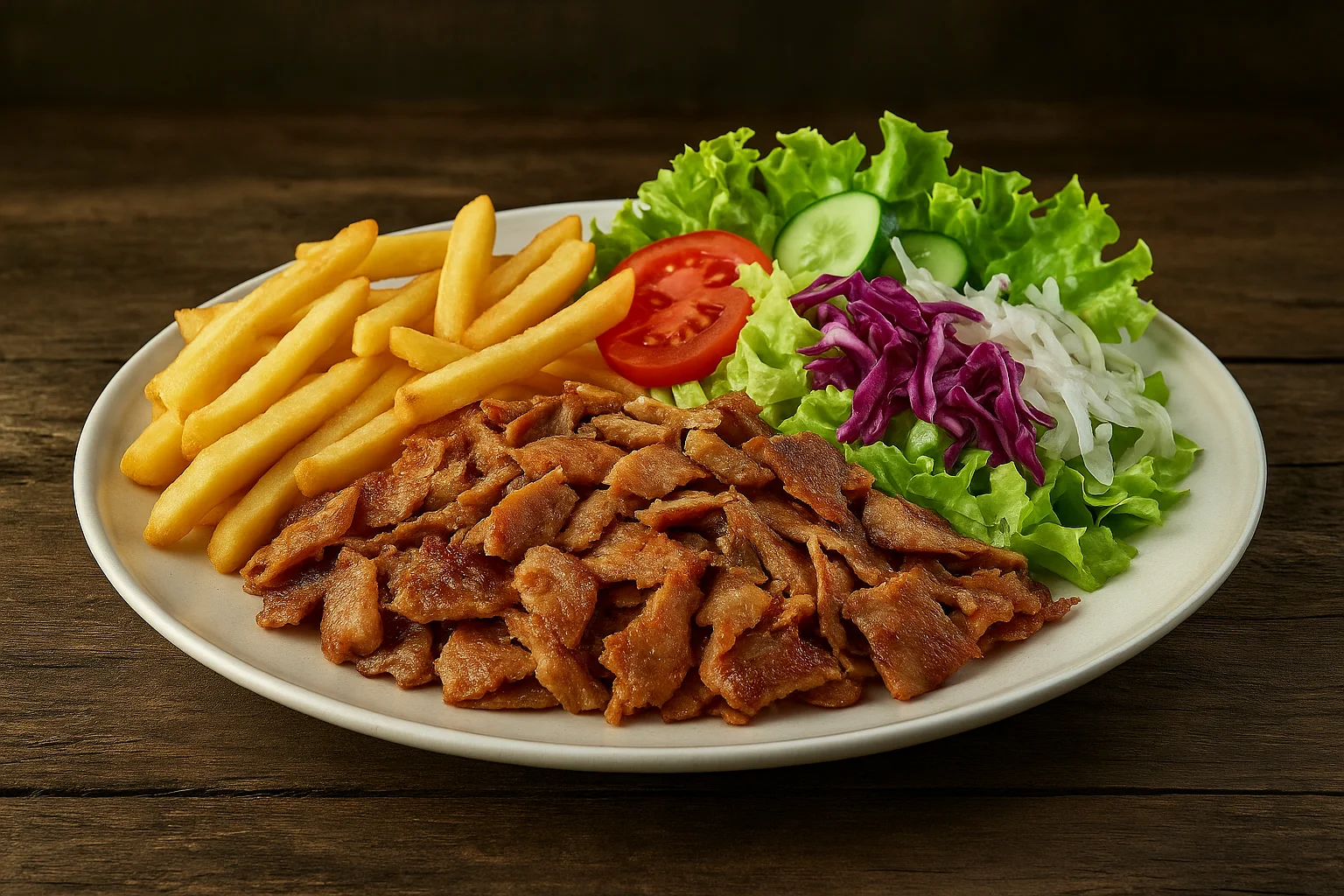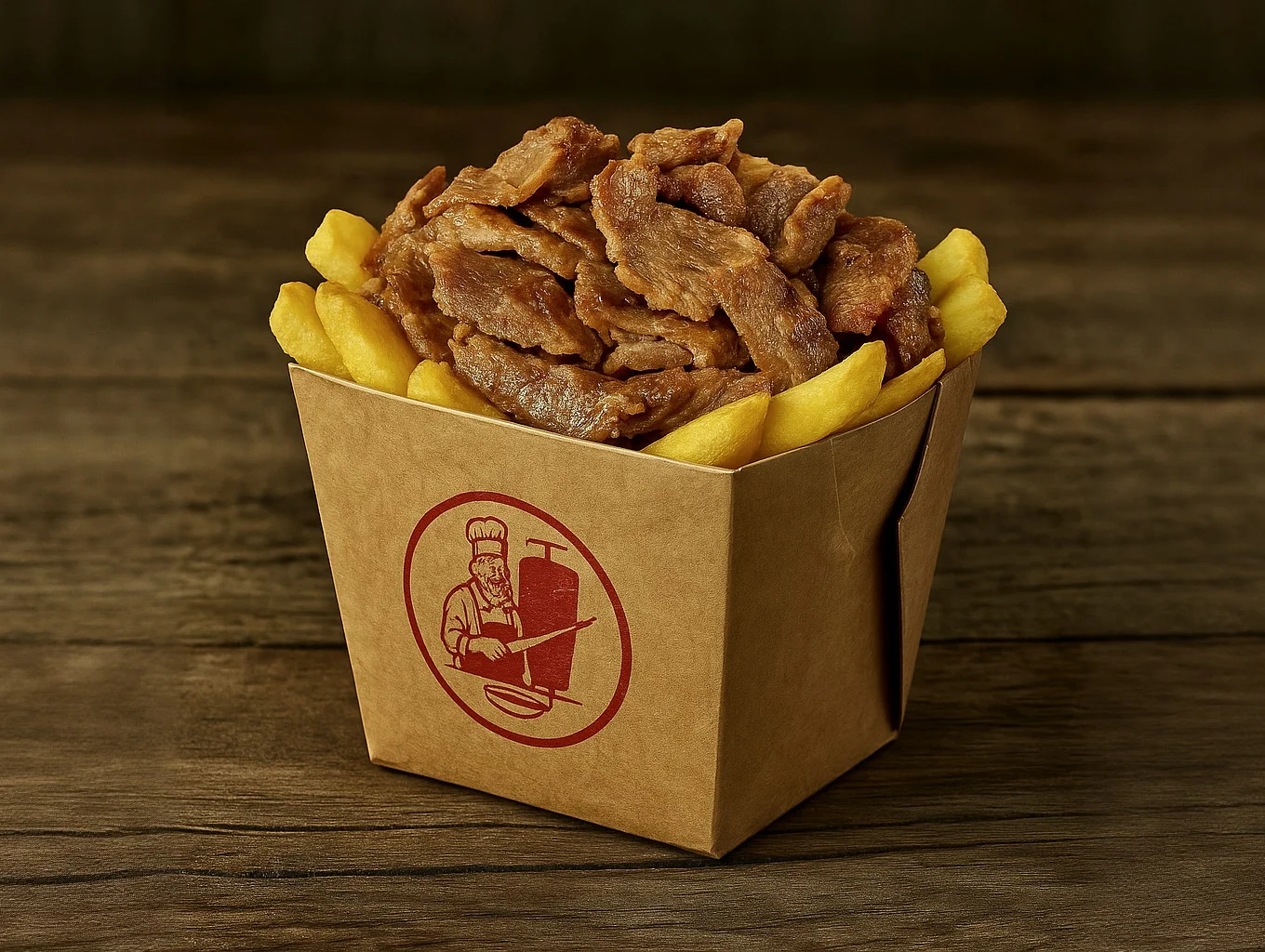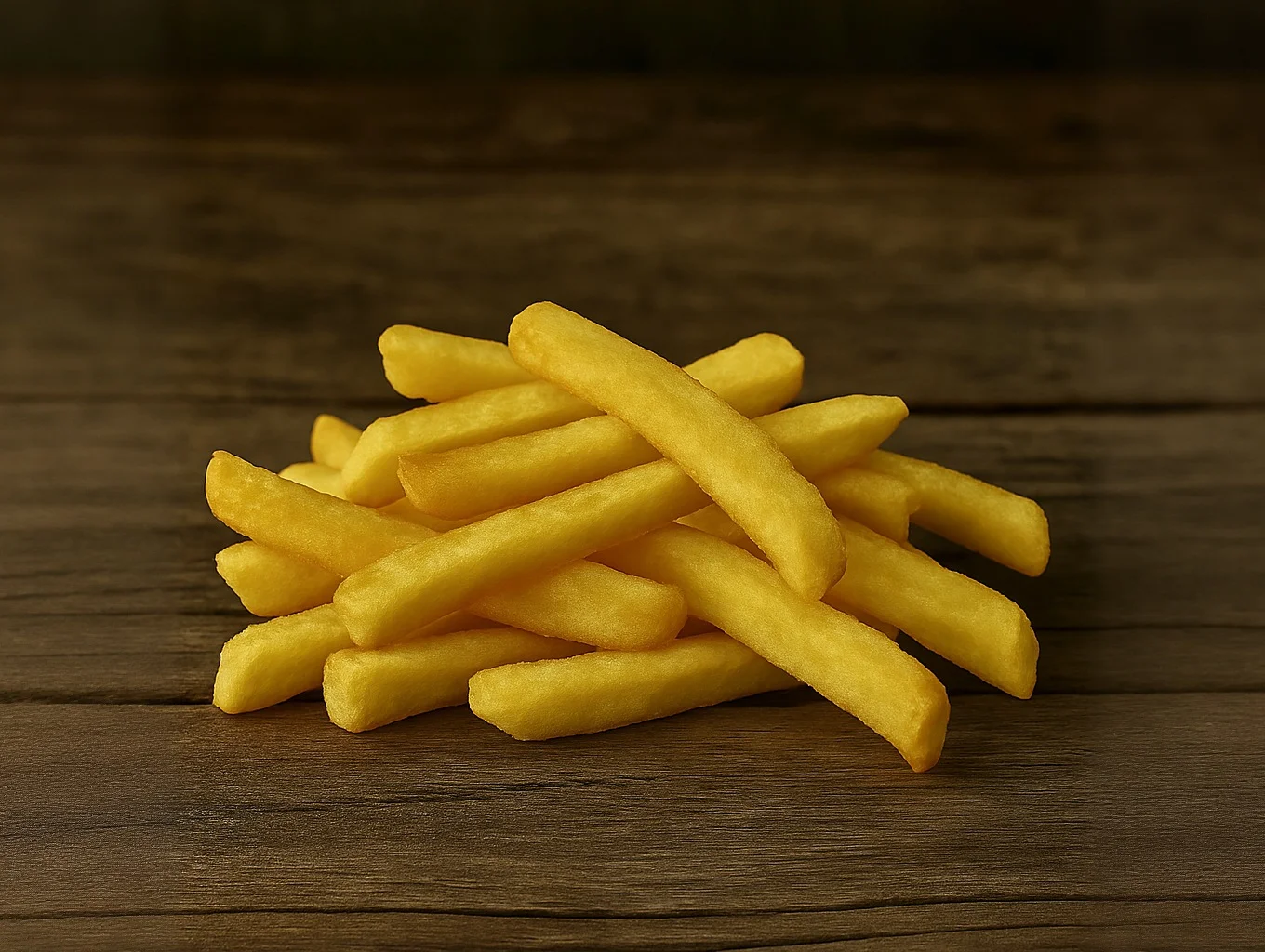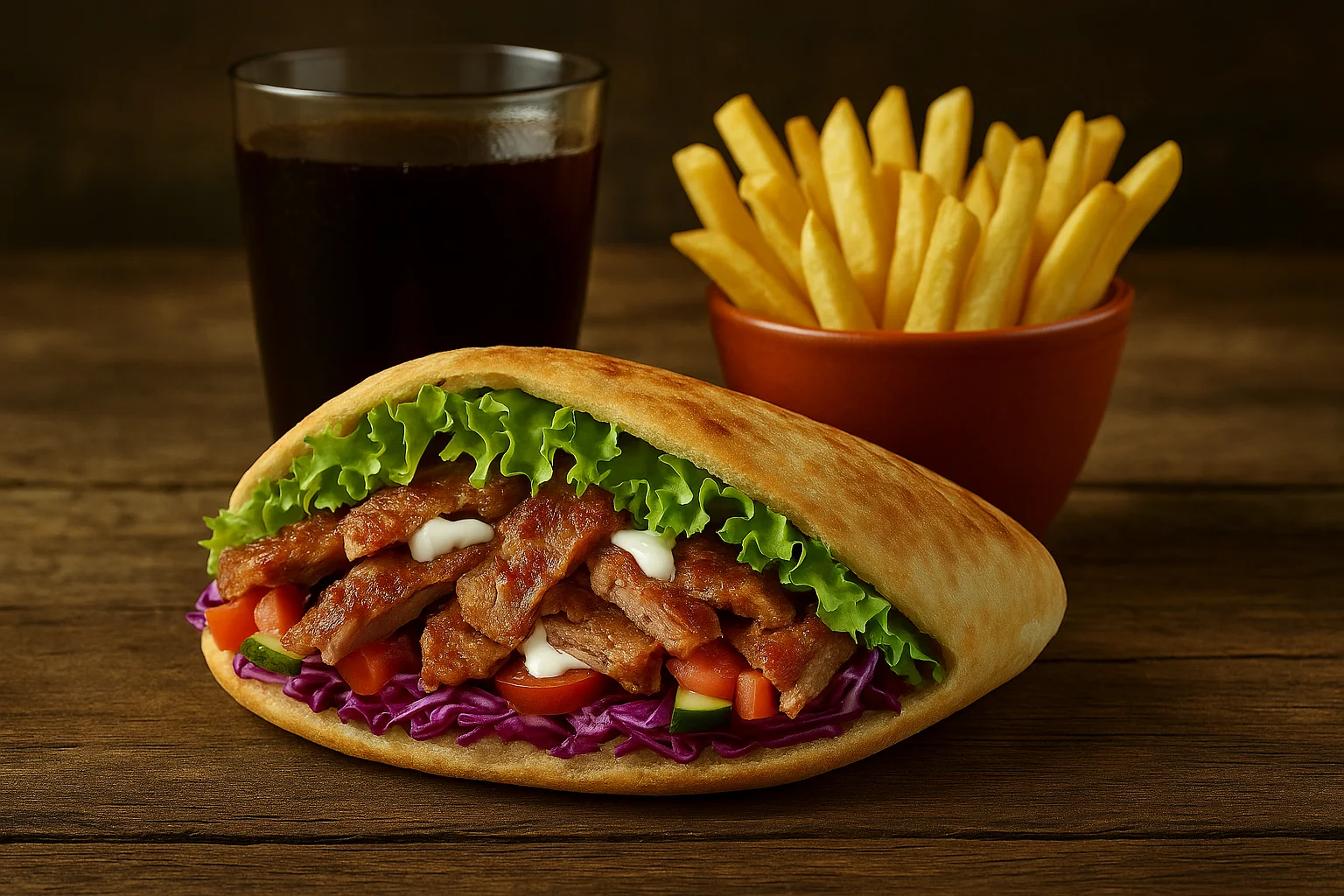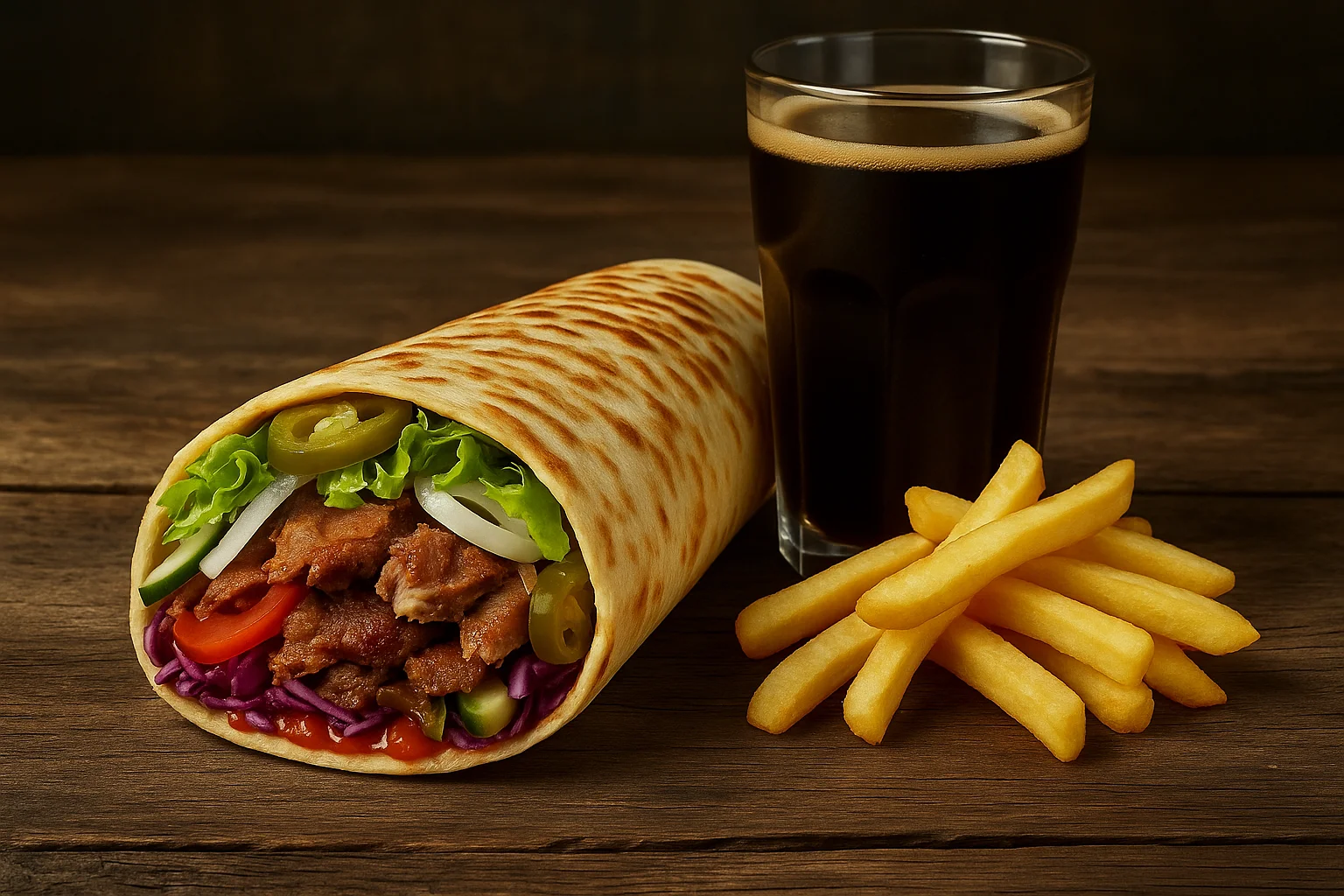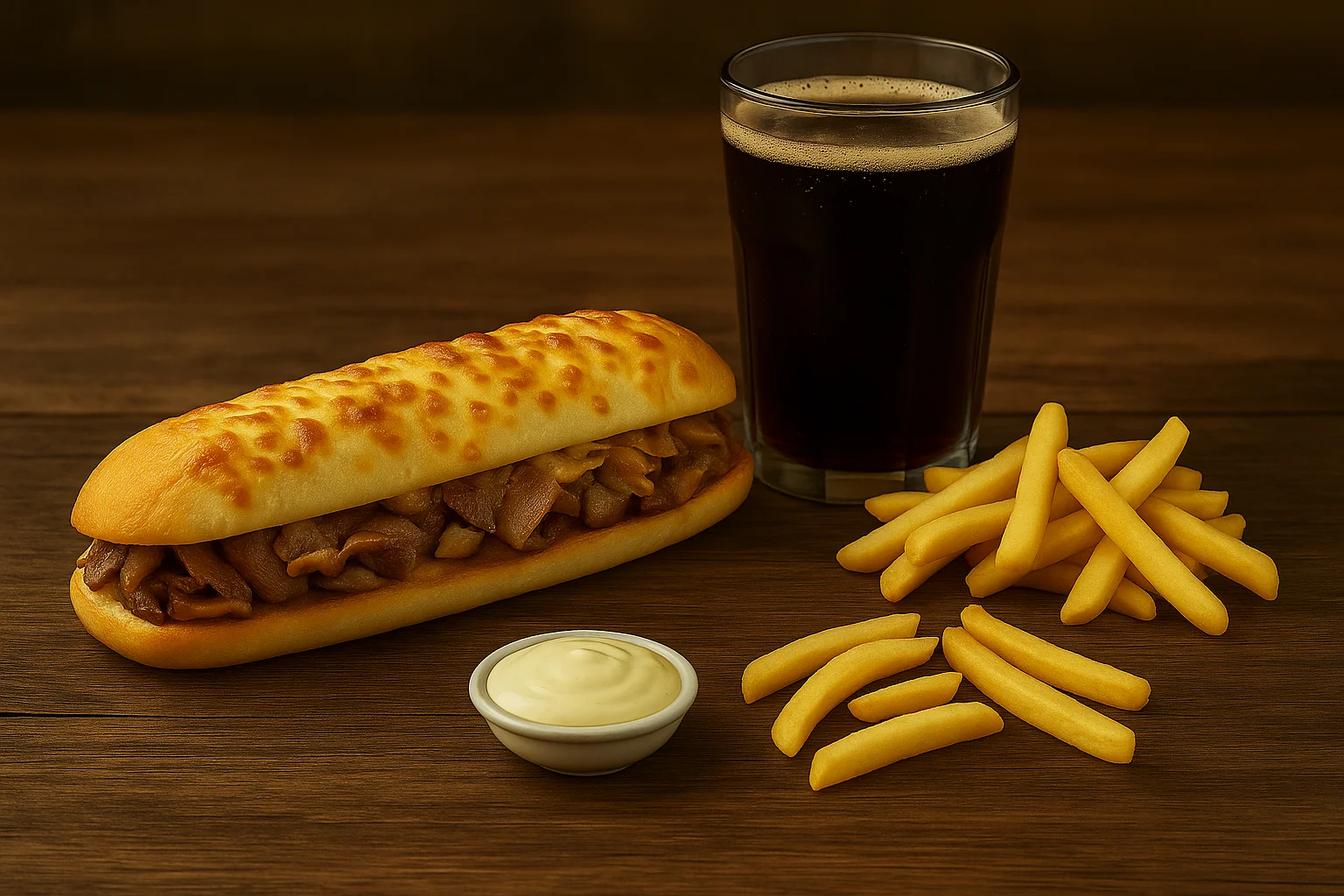German Doner Kebab in Tbilisi
Doner Kebab
170 g marinated veal with choice of vegetables:
- Pickled onions
- Pickled red cabbage
- Iceberg
- Tomatoes
- Cucumbers
- Pepperoni, Jalapeño Peppers
- Choice of sauce
Yufka Durum
190 g marinated veal wrapped in pita bread with vegetables of choice:
- Pickled onions
- Pickled red cabbage
- Iceberg
- Tomatoes
- Cucumbers
- Pepperoni, Jalapeño Peppers
- Choice of sauce
Doner Kebab baguette
150 g marinated veal baked with cheese
Doner Kebab plate
200 g marinated veal with salad and crispy fries
A box of Doner Kebabs
150 g marinated veal — choice of fries or salad
Fries
200 g fries with favorite German spice mix
Combo
Doner Kebab combo
Doner Kebab + fries + drink
Yufka Durum combo
Yufka Durum + fries + drink
Combo Doner Kebab Baguette
Doner Kebab baguette + fries + drink
Sauces
Berlin
Garlic sauce
Athens
Yogurt sauce
New Delhi
Yogurt curry sauce
Tbilisi
Tomato sauce with garlic
Hot sauce
Chili paste, yogurt, tomato paste, herbs
Cocktail sauce
Ketchup, mayonnaise, secret herbs =)
Drinks
Spezi
A German drink, a mix of cola and orange lemonade
Cola
Fanta
Sprite
Ayran
Iced Fuse Tea
Assorted
Black Turkish tea
What is German Döner Kebab?
German Döner Kebab is a Berlin invention
The döner kebab as we know it today in Germany — with meat, salad, and sauce inside a flatbread (fladen) — was created in 1972 in Berlin by Kadir Nurman. He noticed that many people in Germany needed food on the go and simply placed the meat inside bread. Later, salad and sauce were added.
Although the roots of the dish are in Turkey, it was in Germany that döner took on its recognizable form. In Turkey itself, kebab was traditionally considered a refined dish for special occasions. Thanks to the German «updated» version in bread, döner became popular there as well.
Today, there are more than 18,000 döner shops in Germany, including 1,600 in Berlin, which is considered the «döner capital». The industry generates over € 3.5 billion annually and accounts for up to 80% of the entire EU market.

